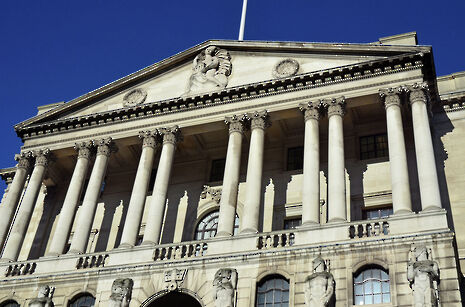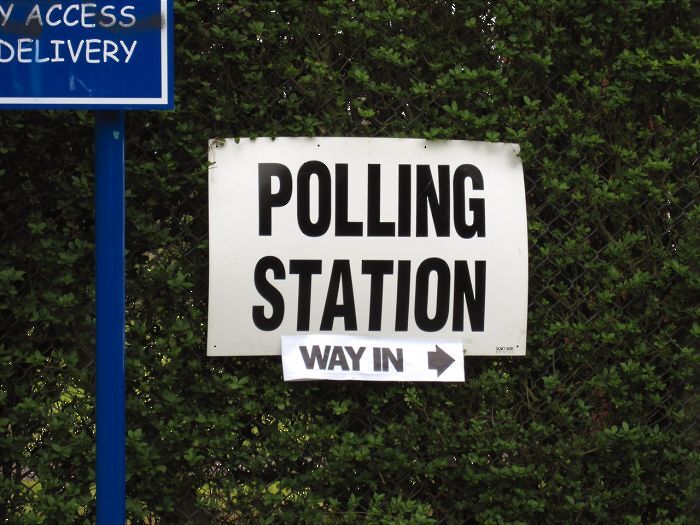A lack of interest in interest rates rises is dangerous
Angus Parker argues that the widespread apathy regarding the economy allows for a vicious cycle of obfuscation towards changes, which can then be weaponised by politicians

Last month, the governor of the Bank of England, Mark Carney, announced an interest rate rise of 0.25% – raising the official annual bank rate to 0.5% – the first increase since July 2007. While most statistics should be scrutinised for the shroud of subjectivity that they harbour, the rate rise is perhaps one of the few objective figures that we can trust. It cannot be misinterpreted – a 0.25% rise means 0.25% – and it matters. Forget economic jargon, interest rates can affect wages, mortgages, savings, incomes and loans, and is fundamental to the functioning, structure and geometry of the wider economic system which serves as the life-blood of society.
“If we don’t take an interest in the economy and question political decisions, changes in the economic sphere can swiftly become opaque, distant and unfamiliar”
Yet the rate rise has quickly dissolved from public interest – and the apparent indifference belies a more important point – that there exists a disconnect and disinterest in the economy more generally. This is borne partly out of the complexity with which economics is perceived as a discipline – the domain of the educated, permeated with technical, ambiguous jargon – but also results from the lack of trust and faith that the wider public have in using the economy as a bellwether for personal stability. How can we place importance and take an interest in decisions that affect the economy (such as the recent rate rise) when our understanding is superficial (seen through the prism of party politics) and our trust has been undermined (particularly since 2007/8)?
The subtlety here, however, is not that the general public are culpably lazy and ignorant. We should not be so self-deprecating. Rather there is a superficiality permeating the ways by which politicians use headline economic figures, claims and fluctuations to further agendas rather than educate the public; and this significantly affects perception. The rate rise, for instance, whilst a fundamentally objective economic change, was couched politically in terms of ‘winners’ and ‘losers’ rather than explanations as to what an interest rate rise actually means, not to mention why it was economically prudent to make such a move.
Instead, the rise was grasped by politicians, from all parties in the House of Commons and both sides of the Brexit debate, as the latest economic instrument with which to shape the topography of societal perception and further political agendas. The rhetoric focused more on the political factors that had precipitated the decision. It was variously disputed, for example, as another reason why we should/should not have voted for Brexit, a result of Labour mismanagement ten years ago, an outcome of Conservative austerity… whatever the agenda, such an influential rise can be moulded to fit any schema. The figure of 0.25% thus became subsumed to the whims of rhetoric and used as political ballast rather than explained in layman’s terms.
This is dangerous – not only for ourselves, individually, but also for society as a whole. It engenders economic passivity, obfuscates deeper structural issues and conceals implications of policy change. We should be wary of such apathy. Whilst economic education is somewhat the responsibility of the state, when core economic changes are made – whether it be from the Bank of England or the government – a failure to take an interest in such decisions, whilst perhaps not immediately costly in the short term, can have significant long-term implications.
To claim otherwise would be to overlook and ignore the case study provided by the aforementioned crash of 2008. An alienation and distancing from the economy ten years ago enabled a system to develop that became so complex, leveraged and widespread that we all became implicated within it without even knowing it. Whilst it might seem too tangential to connect the 2008 crisis with a disinterest in the interest rate rise, if we don’t take an interest in the economy and question political decisions, changes in the economic sphere can swiftly become opaque, distant and unfamiliar. Similarly, the Brexit referendum and subsequent negotiations have vividly projected and reiterated the necessity in understanding fundamental economic factors.
In a transient society in which people incessantly search for certitude and stability, we should be mindful of demanding certainty of our futures, without first grasping the validity and relevance of the present – nowhere is this more evident than in the sphere of the economy. Whilst we must not let ourselves become apathetic towards economic decisions, it is equally incumbent upon politicians and economists, as well as the media, to ensure that current economic change is explained without a rhetorical veneer
 News / Meta opens £12 million lab in Cambridge 11 July 2025
News / Meta opens £12 million lab in Cambridge 11 July 2025 Lifestyle / Reflections on rowing10 July 2025
Lifestyle / Reflections on rowing10 July 2025 News / Cambridge Chancellor hopeful accuses opponent of electoral malpractice 9 July 2025
News / Cambridge Chancellor hopeful accuses opponent of electoral malpractice 9 July 2025 Interviews / ‘Disagreeing agreeably’: meet the three Caians chairing CUCA, CULA and CULC 9 July 2025
Interviews / ‘Disagreeing agreeably’: meet the three Caians chairing CUCA, CULA and CULC 9 July 2025 Comment / So, what are you up to this summer?11 July 2025
Comment / So, what are you up to this summer?11 July 2025










